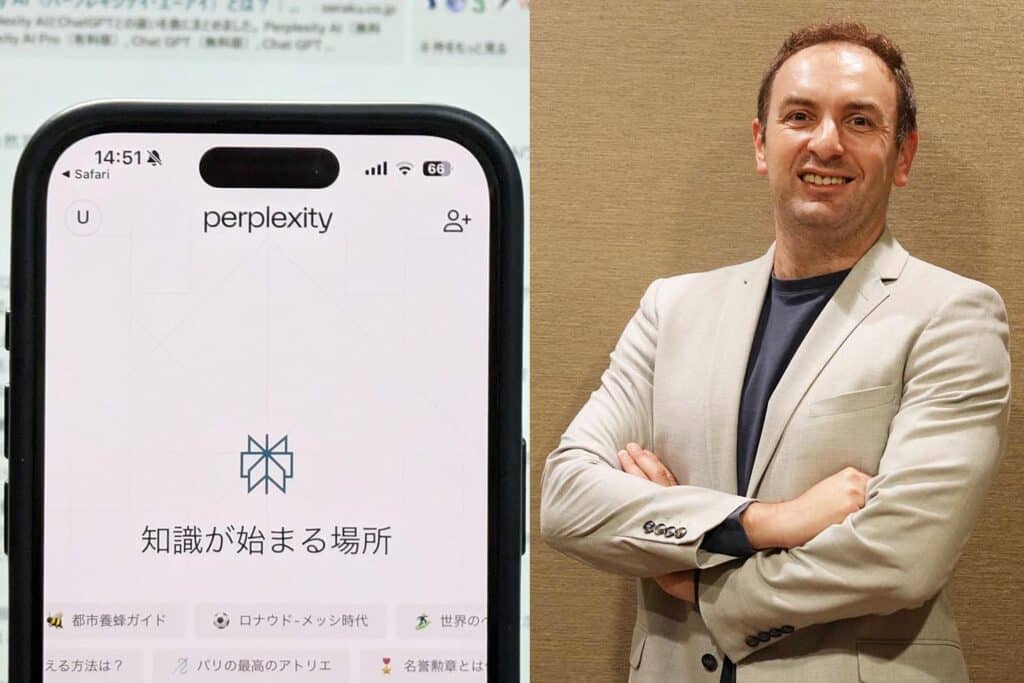“Perplexity,” which promotes AI search with its strength in accuracy, will begin advertising in Japan – Impress Watch

Now that AI has started to be used everywhere, search is also changing. Until now, Google and Yahoo!’s search functions simply displayed a search result page, but now they are increasingly proposing services that extract and generate sentences that are closer to the answer from multiple source pages and present them to users.
Google has started offering this type of “AI search” as “AI Overviews,” and OpenAI has started offering it as “SearchGPT.” The pioneering service is “Perplexity.”
Perplexity is a US company that provides a search engine that combines AI and search technology. It features multilingual support and advanced search functions, and uses OpenAI’s GPT model and Microsoft’s Bing search engine to provide detailed and accurate answers to user questions.
It is available for free, but there are also paid versions of “Perplexity Pro” and “Perplexity Pr Enterprise” for businesses. The regular price for Perplexity Pro is 2,950 yen per month or 29,500 yen per year.
The “Pro” version relaxes the limit on the number of searches, and also makes available features such as LLM switching and image generation.
It has been attracting attention as a pioneer of AI search, and in Japan it announced a partnership with SoftBank in June. It is offering a one-year free trial of Perplexity Pro to SoftBank subscribers (SoftBank, Y! Mobile, LINEMO).
In addition, overseas, they are also introducing advertising to search results and addressing the issue of compensation, which is a hot topic in the world of AI. We spoke to Dmitry Shevelenko, Chief Business Officer of Perplexity, about future developments.
The “accuracy” of answers is Perplexity’s strength
Perplexity is a service that not only returns pages (sources) like in conventional searches, but also provides the “contents of what you really want to know.” With normal searches, you have to scrutinize the information yourself after searching, but with Perplexity, the information is presented in an organized form.
In other words, it can be said to be a service that saves you the trouble of having to do detailed research yourself. On the other hand, for each search result, a link (source) is also displayed to the page where the information originated, so you can check the original web page of the “answer” yourself.
Sheverenko says Perplexity’s unique feature is its “answer engine.”
“Perplexity is the first company in the world to combine AI and search. Our goal is to answer questions. We use search to gather real-time information from the Internet and use AI’s unique features of summarization and synthesis. By combining AI and search, we will provide a differentiated service that is loved by users. That’s what we’re focusing on. What we’re creating is an answer engine that answers questions.”
Perplexity launched its service in December 2022. Although the company has not disclosed the current number of users, it says that “last month (August) there were more than 250 million responses.” In 2023, there were 500 million responses overall, so in one month, about half of last year’s responses were made, showing the company’s confidence in its rapid growth.
The reason for its use is the “quality of answers.” The summaries are appropriate, and real-time information is reflected. This makes it “a service that makes the Internet easier to use,” says Sheverenko.
Meanwhile, “AI search” is something that Google and OpenAI are working on, and Microsoft is also incorporating a similar function called Copilot into Office. How can Perplexity differentiate itself as competitors create systems that are linked to “non-AI search” features?
“We are focused on answering users’ questions. By concentrating on that, we have been able to make improvements quickly and improve usability. That is our strength, and the fact that there is little user abandonment is proof of that.”
“The other is our partners. My visit to Japan is part of that. For example, we have partnered with SoftBank in the mobile sector, and we are expanding our platform by partnering with South Korea’s SK Telecom, Deutsche Telekom, and the American communications company Xfinity. Also, when you look at the incorporation of our solutions into other companies’ office products, there are some areas where usability is lacking. Our advantage lies in the quality of ‘answering questions’ that users expect.”
Expanding to Japan through collaboration with SoftBank, with hopes of corporate adoption
What is Perplexity’s business model?
Sheverenko explains that Perplexity currently has four business models:
- Consumer subscription “Perplexity Pro”
- “Perplexity Pro Enterprise” for businesses
- Advertising (US launch Q4 2024)
- API provision
Of these, subscriptions for general consumers currently make up the largest portion of the total, while the corporate service launched in May has also seen significant growth.
So, will the company focus on individuals or businesses going forward? Sheverenko responded, “Both.”
“For example, how do you use Google search? You use it for work, but you also use it for personal purposes, like looking for restaurants to go to on the weekend. There’s no difference. We’re going to target both.”
“However, since we have a large number of users who are ‘knowledge workers,’ we plan to focus on strengthening the functions. We want them to use it for work such as research and inquiries, and we will increase the number of functions that will become familiar to these users.”
Regarding usage in Japan, the number of individual Perplexity Pro subscribers has grown significantly since June as a result of the partnership with SoftBank, and usage has also increased significantly.
Another aim of the partnership is to strengthen the “corporate” market. For corporate customers, “Japan is the second fastest growing market,” and they will work with SoftBank’s sales force to expand. In addition, they are considering services focused on industries such as “finance” and “law.”
Advertising services and revenue sharing launched in Japan
A business using “advertising” will also be launched soon.
Advertising is scheduled to begin in the US in the fourth quarter of 2024, and at the same time, the plan is to return revenue to the publishers who are the source of the information. Publishers such as IME, Der Spiegel, and Fortune will participate and introduce a revenue sharing system when they refer to the source.
As mentioned above, Perplexity’s unique feature is that it combines the latest web search with AI to provide highly accurate answers and their “sources.” However, if Perplexity does not provide revenue to the publishers who provide the information, it will be like “freeloading” on the source. Therefore, in conjunction with the introduction of the advertising service, Perplexity will also introduce a revenue sharing program.
The program allows brands (advertisers) to pay to advertise on specific, relevant “follow-up questions” within Perplexity’s responses, with a portion of Perplexity’s advertising revenue from those related questions being paid back to the publisher.
The company plans to launch an advertising service in Japan as well. It also plans to launch a revenue return program in Japan. One of the purposes of Sheverenko’s visit to Japan is to meet with publishers.
Regarding when the advertising business in Japan will begin, the company stated, “It will likely be early 2025. We plan to start pilot testing in the fourth quarter (October-December).”
Mr. Sheverenko said, “Perplexity’s goal is to improve the user experience by 1% every day. We will grow by continuing to do so steadily.” He also said that they will strengthen their services in each area, including subscriptions, corporations, and advertising.




